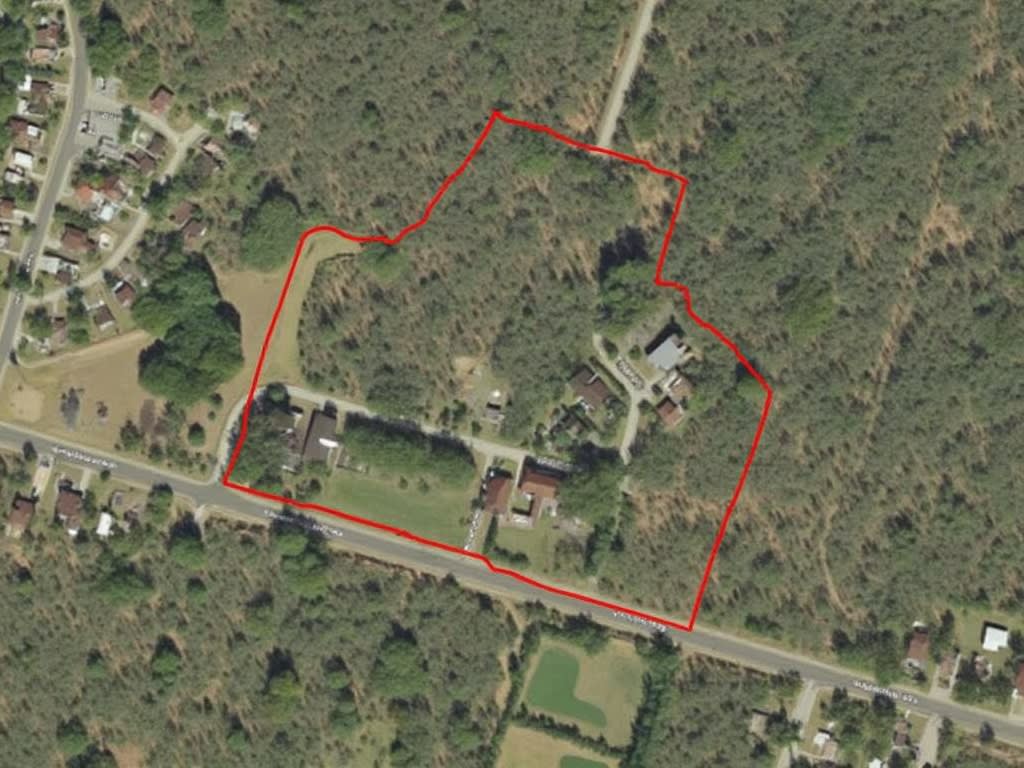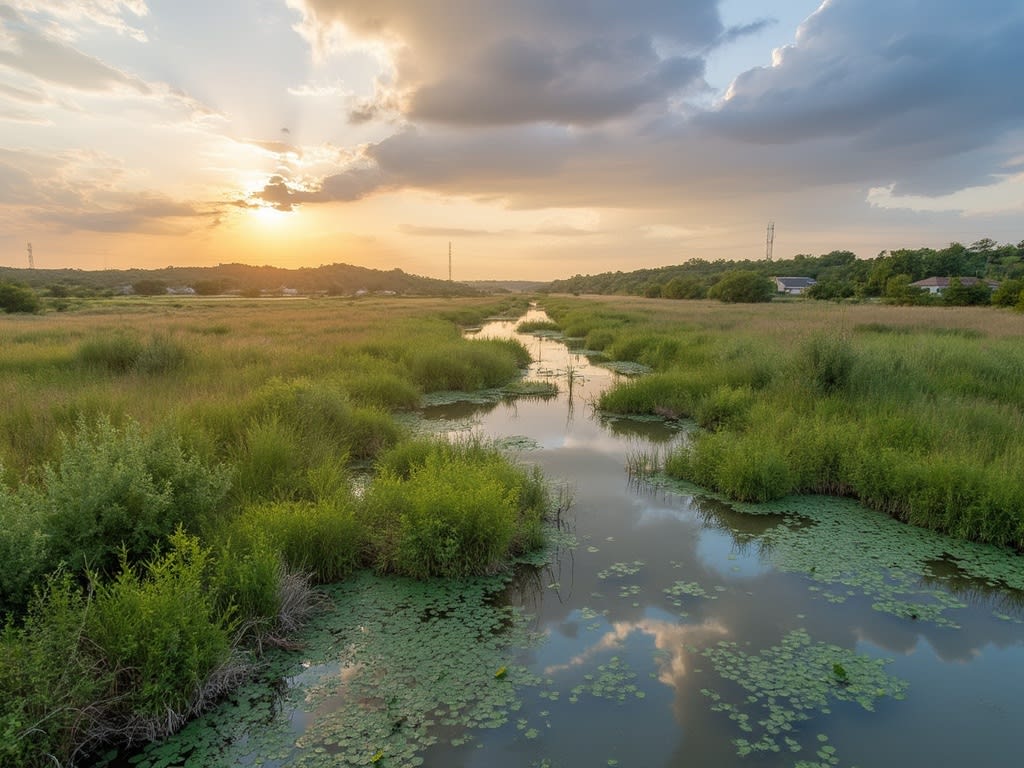Canyon Lake’s real estate market continues to thrive with median listing prices reaching $490K and 689 land homes up for sale. This prime location attracts developers thanks to its substantial tourism draw of 1.5 million yearly visitors. The stable mix of full-time residents and vacation property owners creates reliable Canyon Lake land investment opportunities.
Key Takeaways:
- Developers maintain competitive pricing and efficient sales processes by managing paperwork, permits, and closing costs to speed up transactions
- Army Corps of Engineers restrictions and environmental regulations can limit development options and potential
- New development projects, including condos and townhouses, positively impact surrounding property values
- Development brings shifts in community dynamics through increased traffic, higher noise levels, and additional pressure on local services
- Land sales to developers permanently transfer control of the property’s future use and potential gains from zoning updates
Canyon Lake’s Hot Property Market: What Landowners Need to Know
Market Statistics and Growth Indicators
Canyon Lake’s real estate market shows strong performance with current median listing prices reaching $490K. The area maintains steady activity with 689 land homes available for sale, while 44 properties changed hands in the last month alone.
Several premium neighborhoods drive the market’s appeal:
- Mystic Shores offers waterfront opportunities
- The Summit Estates at Fischer features large acreage lots
- River Chase provides hill country views
- River Crossing combines accessibility with natural beauty
- Vintage Oaks at the Vineyard attracts luxury buyers
The area’s tourism strength, drawing 1.5 million visitors annually, supports property values and rental potential. With 21,251 residents and 1,537 local jobs, the community balances growth with small-town charm. These factors create favorable conditions for landowners considering developer offers, particularly in high-demand neighborhoods.
I’ve noticed property values benefit from Canyon Lake’s mix of permanent residents and vacation homeowners. This dual market creates year-round demand and helps stabilize prices. Local employment numbers suggest sustainable growth rather than speculative development, making this an ideal time for landowners to evaluate their options.

Financial Benefits and Quick Sales: Why Developers Want Your Land
Current Market Advantages
Developers offer competitive prices for Canyon Lake properties, with prime locations commanding premium rates. I’ve noticed developers consistently streamline the sales process by handling paperwork, permits, and closing costs – making transactions faster than traditional real estate sales.
Local property values benefit from new development projects. Based on current Canyon Lake listings, there’s strong demand across multiple property types:
- 23 condo units in active development
- 9 townhouse projects underway
- 4 multi-family developments in progress
Your land sale can attract new businesses and create local jobs through construction, maintenance, and property management positions. This applies whether you’re selling farmland, ranch property, residential lots, lakefront parcels, or recreational acreage. The simplified selling process paired with fair market value makes developer sales an attractive option for many Canyon Lake landowners.
Environmental and Regulatory Hurdles
Legal Requirements and Restrictions
Before selling your Canyon Lake land to developers, you’ll need to understand several key regulatory requirements. Texas Senate Bill 4 sets specific standards for affordable housing projects, including strict deed restrictions that maintain affordability for set periods. Your property must meet location criteria within urbanized zones to qualify for development.
Environmental standards play a major role in development approval:
- Phase I and II environmental assessments check for contamination and hazards
- Local density limitations control building height and unit numbers
- Protected species habitat surveys may be required
- Watershed protection measures apply near Canyon Lake
- Soil testing confirms land suitability for construction
These regulations help protect property values and natural resources while ensuring sustainable development. I recommend consulting with a local environmental specialist to assess your land’s development potential before listing it for sale.

Government Restrictions and Easements
Corps of Engineers Compliance
The U.S. Army Corps of Engineers sets specific limitations on land development near Canyon Lake through flowage easements. These restrictions directly impact what you can build on your property. I’ve found that many landowners don’t realize these rules exist until they start planning construction.
Key restrictions from the Corps of Engineers include:
- No permanent residential structures like houses or cabins within the flowage easement area
- Prohibition of septic systems and tanks in designated zones
- Required construction permits for any building projects
- Mandatory approval from the Fort Worth District Engineer before starting work
Before selling your land to developers, you’ll need to verify your property’s exact easement status. The Corps maintains strict control over these areas to protect water quality and manage flood risks. Each construction project requires detailed review and approval, which can add time to development timelines. Getting permits approved isn’t automatic – the Fort Worth District Engineer must sign off on all plans that fall within regulated areas. This oversight process helps maintain Canyon Lake’s environmental standards but can limit development options and affect property values.
Community Impact and Quality of Life Changes
Daily Life Adjustments
Selling land to developers in Canyon Lake brings notable changes to the community’s character. Traffic congestion becomes more noticeable, particularly during peak hours as new residents settle in. According to Walk Score ratings, Canyon Lake scores just 3 out of 100, indicating heavy car dependency – new development adds to this vehicle-focused environment.
Consider these key community changes before selling:
- Higher noise levels from construction and increased population density
- Greater strain on local roads and utilities
- Potential positive boost to nearby property values as amenities improve
- Reduced privacy and natural views
- More pressure on existing infrastructure like water systems
- Changed neighborhood dynamics with new residents
- Modified local character from rural to more suburban setting
While development can bring improved amenities and services, I’ve seen how it fundamentally shifts the peaceful atmosphere many Canyon Lake residents value.

Loss of Control and Future Considerations
Loss of Development Rights
Once you sell your land to a developer, I’ll make it clear – you permanently give up all control over its future use. This means saying goodbye to any plans you might have had for the property, from building a family home to preserving it for future generations. Zoning changes after the sale could also increase the property’s potential value, but you won’t benefit from these changes.
Community Impact Factors
Selling your Canyon Lake property can trigger significant changes in the local landscape. Here are the key long-term effects to consider:
- Increased traffic and noise levels in previously quiet areas
- Changes to the natural environment and wildlife habitats
- Potential shifts in neighborhood character and property values
- Impact on local infrastructure and services
- Alterations to community demographics and dynamics
Many landowners struggle with the emotional aspect of selling family property, especially if it holds memories or has been passed down through generations. Understanding the local development regulations can help inform your decision about whether to sell your Canyon Lake property.

